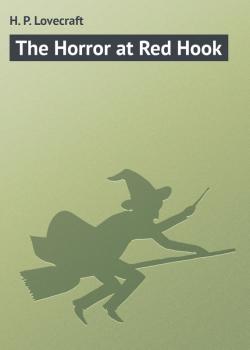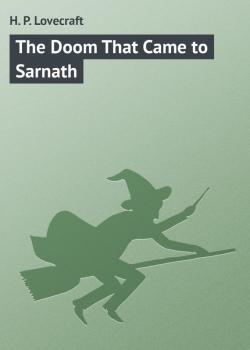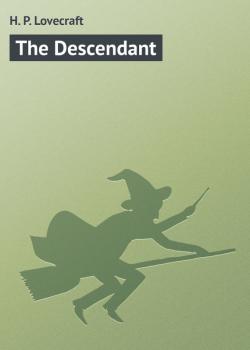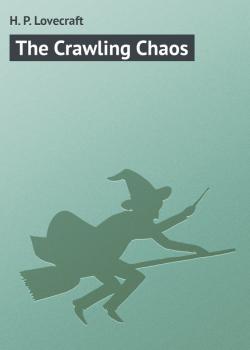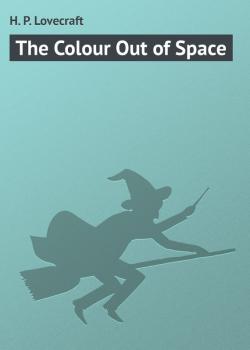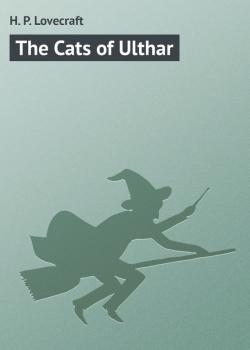Ужасы и Мистика
Различные книги в жанре Ужасы и МистикаThe Horror at Red Hook
Circles and pentagrams loomed on every hand, and told indubitably of the strange beliefs and aspirations of those who dwelt so squalidly here. In the cellar, however, the strangest thing was found-a pile of genuine gold ingots covered carelessly with a piece of burlap, and bearing upon their shining surfaces the same weird hieroglyphics which also adorned the walls.
The Doom That Came to Sarnath
According to the tale, more than 10,000 years ago, a race of shepherd people colonized the banks of the river Ai in a land called Mnar, forming the cities of Thraa, Ilarnek, and Kadatheron (not to be confused with Kadath), which rose to great intellectual and mercantile prowess. Craving more land, a group of these hardy people migrated to the shores of a lonely and vast lake at the heart of Mnar, founding the metropolis of Sarnath.
The Descendant
"The Descendant" is a story fragment, believed to have been written in 1927. Lovecraft may have been referring to this attempt at a story when he wrote that he was "making a very careful study of London…in order to get background for tales involving richer antiquities than America can furnish."
The Crawling Chaos
The story begins with the narrator describing the effects of opium and the fantastical vistas it can inspire. The narrator then tells of his sole experience with opium in which he was accidentally administered an overdose by a doctor during the "year of the plague."
The Colour Out of Space
"The Colour Out of Space" is a 1st-person narrative written from the perspective of an unnamed Boston surveyor. In order to prepare for the construction of a new reservoir in Massachusetts, he surveys a rural area that is to be flooded near Lovecraft's fictional town of Arkham. He comes across a mysterious patch of land, an abandoned five-acre farmstead, which is completely devoid of all life.
The Cats of Ulthar
In the tale, an unnamed narrator relates the story of how a law forbidding the killing of cats came to be in a town called Ulthar. "The Cats of Ulthar" was a personal favorite of Lovecraft's, who was an ardent cat lover.
The Horror at Martin's Beach
Sailors kill a 50 foot creature at sea after a lengthy battle. The creature bears strange anatomical irregularities such as a single large eye and rudimentary forelegs and six-toed feet in place of pectoral fins. After inspection by marine biologists, it is revealed to be just a juvenile. The captain who captured the creature tours the coast and profits from the corpse of the deceased creature. As the captain attempts to finish his business at Martin's Beach, a group of swimmers are attacked. The captain and others attempt to rescue the victims but it is too late. The good samaritans and the captain are hypnotized and pulled into the water by the creature's apparently vengeful mother, to the horror of an onlooking crowd.
The Pit and the Pendulum
The blackness of eternal night encompassed me. The intense darkness oppressed and stifled me so that I struggled for breath.Having been condemned to death by the Spanish Inquisition, the narrator descends into a kind of hell. Dizzy with weakness and fainting with fear, he experiences such torments that death itself would be welcome. What troubles him most is the eternal question: how will he die?Toledo Prison is notorious for the torture of the condemned. What minds have dreamed up the terror of the pit in the center of the cell? What is the significance of the painted figure of Time with his menacing pendulum? Why do the walls glow with heat?Experience with the narrator the intensity of his suffering when death seems inevitable but its form uncertain. Can anything, or anybody, help him?
Ligeia
"Ligeia" is a short story written by Edgar Allan Poe and first published in 1838. "Ligeia" is widely considered to be one of the top 100 greatest books of all time. The story follows an unnamed narrator and his wife Ligeia, a beautiful and intelligent raven-haired woman.
The Fall of the House of Usher
"The Fall of the House of Usher" recounts the terrible events that befall the last remaining members of the once-illustrious Usher clan before it is―quite literally―rent asunder. With amazing economy, Poe plunges the reader into a state of deliciously agonizing suspense. It's a must-read for fans of the golden era of horror writing.
